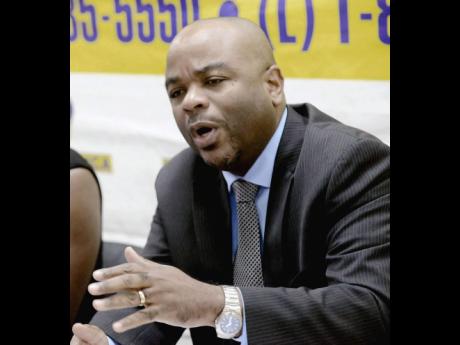INDECOM's search of army base on hold - Agency gives JDF time to 'consider its position'
The Independent Commission of Investigations (INDECOM) has put on hold plans to enforce a court order authorising its investigators to search the army's Up Park Camp headquarters and question top military commanders about the use of mortars during the May 2010 west Kingston operation.
Commissioner of INDECOM, Terrence Williams, said that the delay is to give the Jamaica Defence Force (JDF) time to "consider its position" in the wake of last month's landmark ruling by the Supreme Court.
"Ordinarily, the next step would be to proceed with the warrant and with the notices [to seven unnamed military commanders]," Williams said yesterday.
"But we have had some indication from the other side [JDF] that they would want to consider their position so we are holding strain," he added in reference to a possible legal challenge to the court ruling by the army.
Sixty-nine civilians and one soldier were killed during the police-military operation in west Kingston, which were aimed at capturing Jamaican drug kingpin Christopher 'Dudus' Coke. He was wanted in the United States on drug and firearm charges.
Denied using mortars
The army initially denied claims that mortars were used in the operations, before retired Chief of Defence Staff, Major General Stewart Saunders, admitted, during testimony before the west Kingston commission of enquiry, that 37 mortars were fired during the operation. Saunders said that the explosives were fired into three open spaces, including the football field, in Tivoli Gardens.
The commission heard evidence that the body of one of the civilians killed in the operation, identified as Carl Henry, was found along Chang Avenue in the vicinity of the football field. The cause of death, according to a post-mortem report, was hemorrhaging and shock, as well as a "perforating shrapnel wound to the abdomen".
Following the operation, INDECOM launched an investigation into the use of mortars by the JDF to determine whether there are reasonable grounds to suspect that military personnel contravened the law and whether recommendations should be made concerning the operation.
As part of the investigations, the oversight body served then JDF Chief of Defence Staff, Major General Antony Anderson, with a warrant in December 2015 indicating that its investigators would enter JDF headquarters to inspect and photocopy records, documents and other information related to the use of mortars.
But Anderson baulked and, armed with certificates of immunity signed by then Minister of National Security Peter Bunting days after the warrant was served, went to court seeking several orders that would block the search.
But the Supreme Court, in a 2-1 decision, refused all but two of the 12 orders sought by the army.
The INDECOM boss said it was difficult to predict how the more than two-year wait to access JDF records would impact the probe. "Some part of the investigation, which depend on the memory of witnesses and records, we couldn't tell you until we receive the documents and ask the questions we want to ask," he said.
He noted, however, that "this part of the investigation is scientific and time should have no impact on it".

